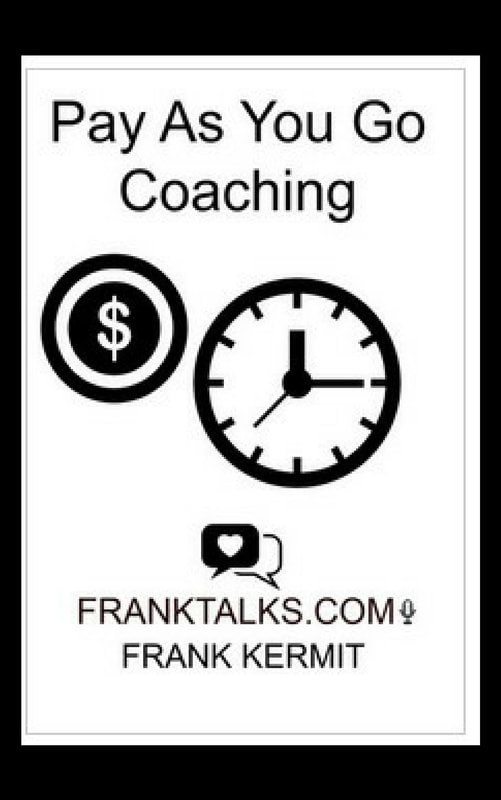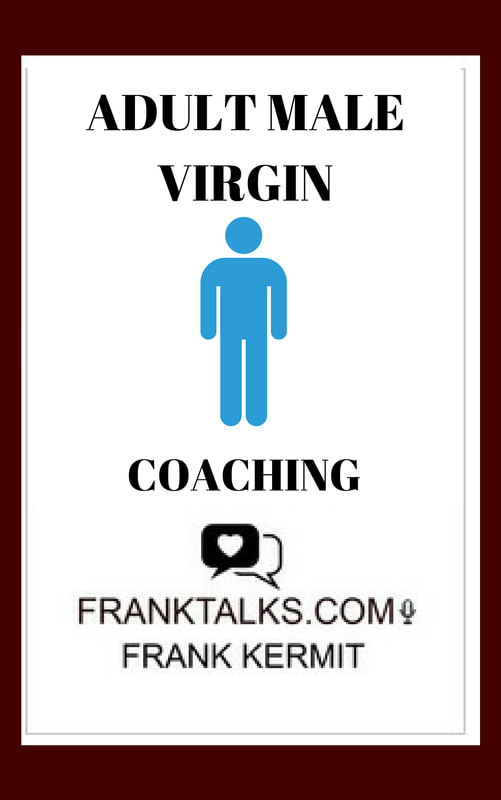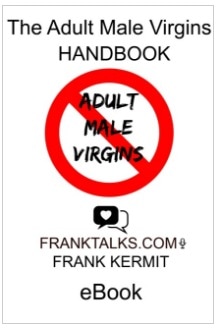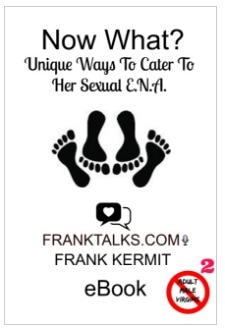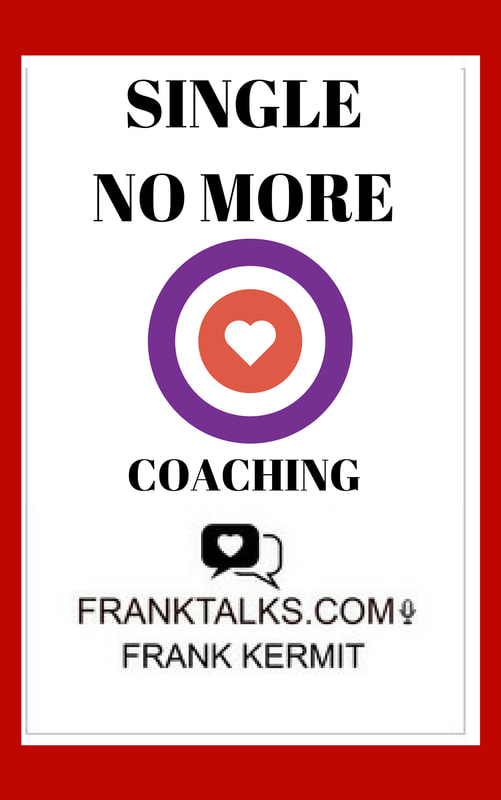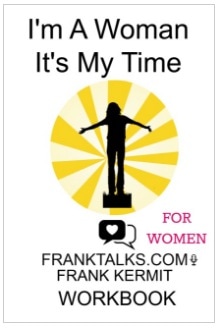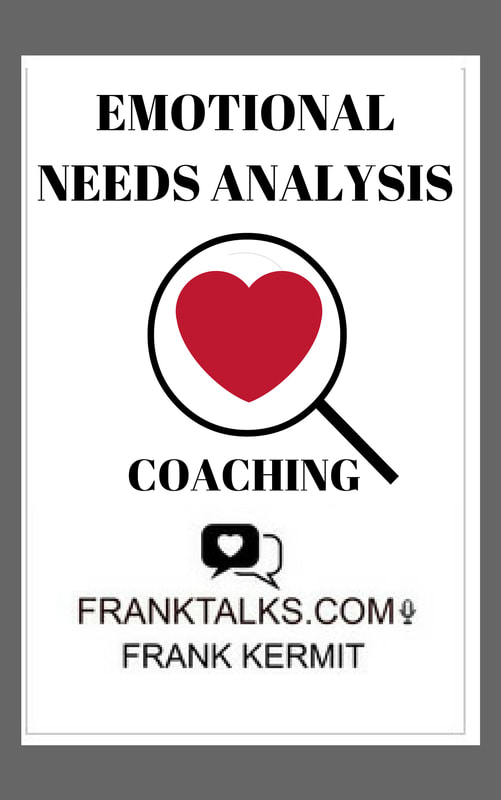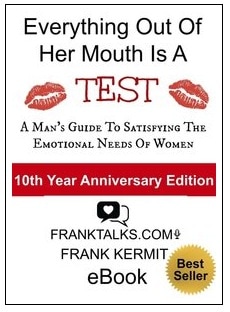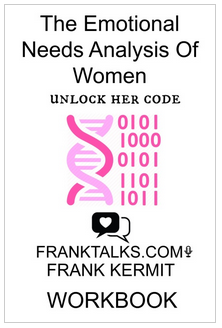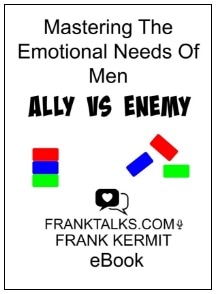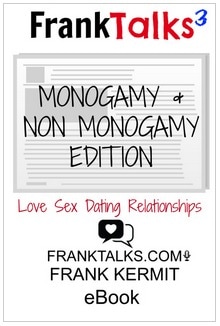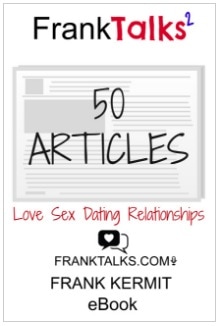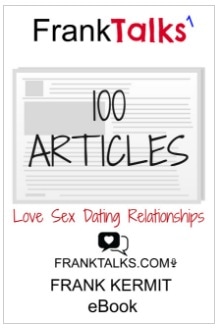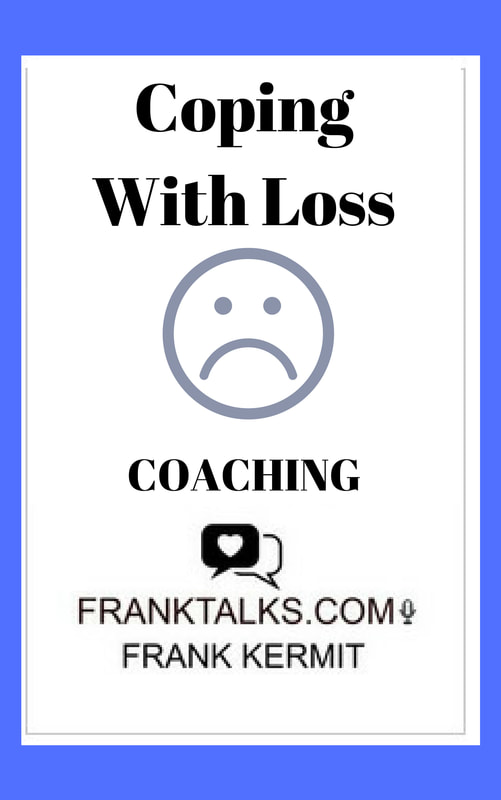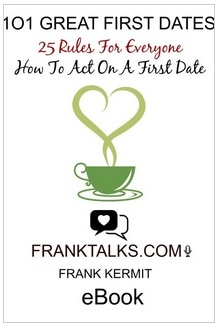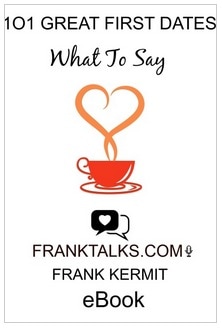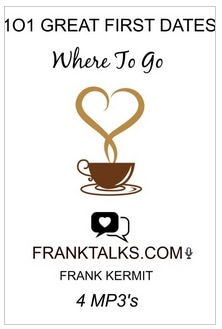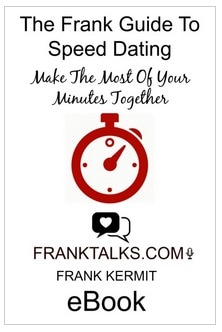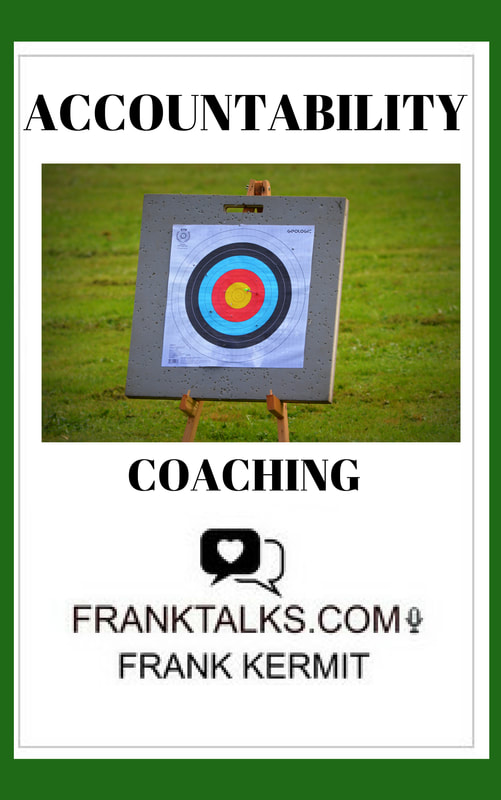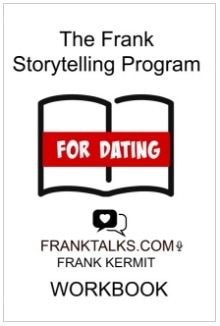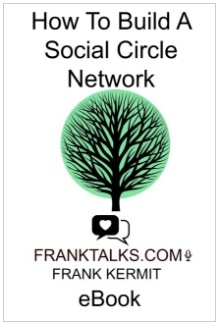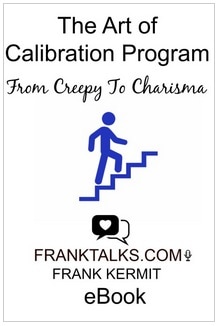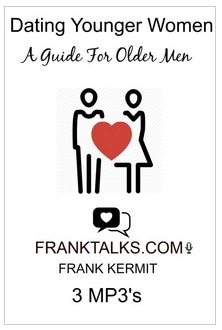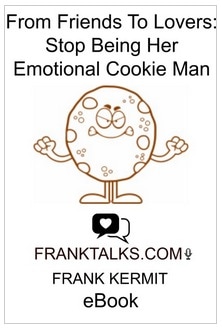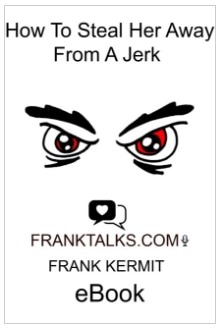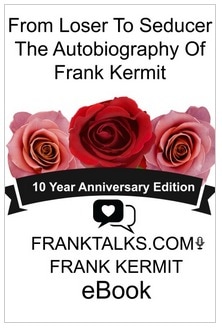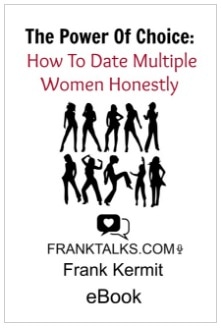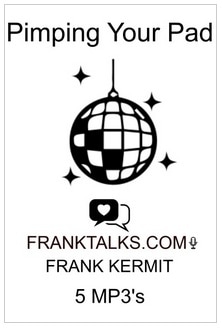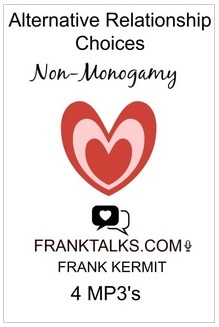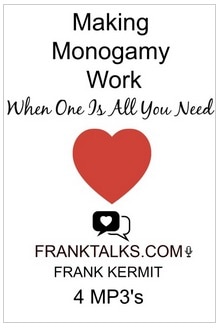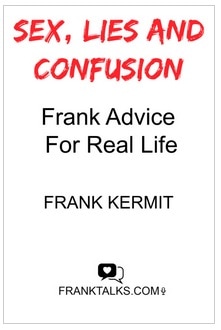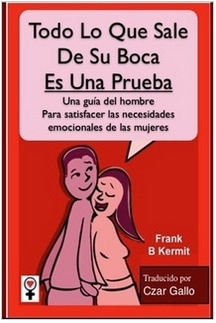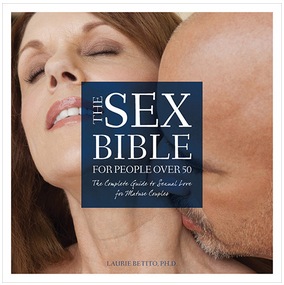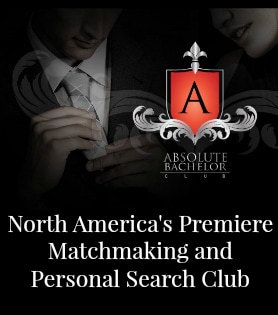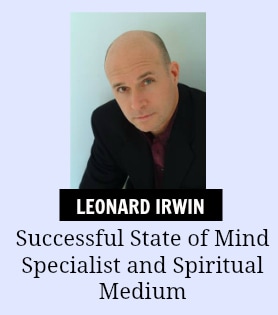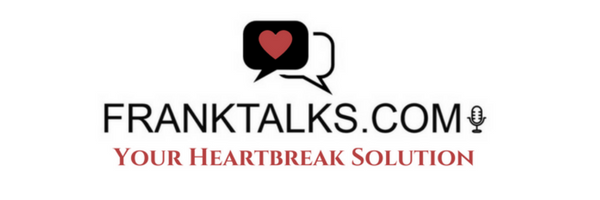|
Bad Sex? Speak Up! by Kristin Casey In response and review of a New Your Magazine Article As an intimacy coach, my time is spent immersed in topics of dating, relationships, and sexuality. Aside from working directly with clients, I keep up on relevant research, articles, books, opinion pieces, and the occasional, well-thought-out blog. A variety of evolving attitudes and perspectives informs my work and feeds my passion. Half of what I read is inspiring and encouraging. The other half…not so much. A recent piece in NYMag.com (a copy of said article is at the bottom of this post, for the purposes of fair use fair copying as a review of the article, and to provide a balanced perspective) relayed the experiences of female college students, a diverse population of smart, savvy, autonomous adults, who feel something between chagrined and victimized, by a widespread epidemic of bad sex. The premise of the article seems to be that this situation needs further interrogation. That this “vast expanse of bad sex — joyless, exploitative encounters that reflect a persistently sexist culture” needs to be acknowledged. The question is, by whom? If, like me, you’re thinking by the dissatisfied women’s partners, of course, you’ll want to read on. Here are a few key points from the article:
The above sampling of learned helplessness is not an anomaly. I hear this stuff from women all the time, daily, in person and online. I’ve been hearing it since my teens. (I’m currently 49.) I could write a book on this topic, and maybe someday I will. For now, my question is, Where is the accountability? Where is any attempt to take personal responsibility for one’s choices, behavior, and sex life? Where is any indication these women understand they have as much control as the man in bed—as much as they choose to wield, in fact—and with that control comes not just the power but the duty to be as “good” as they expect him to be? My next question is, what is this nebulous force “campus feminism” and why is it tasked with addressing these women’s problem? Why aren’t the sexually dissatisfied women—presumably feminists themselves—addressing it with their individual sex partners? (I hate to point out the obvious, but honestly, I feel like I just solved their entire problem.) This quote from the article is most illuminating. A 29-year-old editorial director of a well-known feminist website, has just described her longstanding unsatisfying sex life. She winds up feeling bad for not having done the work of telling her partners how to make her feel good. “What I want is not for me to have that burden. I want one of my male partners, who are wonderful men who care about me, to have just once been like, ‘No, this is unacceptable to me. I’m not going to continue to have sex with you when you’re not getting off!’ And I can’t imagine that happening.” To be clear, this thing she pines for yet can’t imagine happening, is a fairytale scenario, akin to waving a hanky for a prince to ride up to save her. Is this what we’re calling empowerment now? Is this how “campus feminism”—or any feminism—works? (No, it’s absolutely not.) The burden? The “burden” of learning what brings a woman sexual pleasure belongs to her alone. The burden of conveying that information to her partner(s) is also hers alone. It’s not only unreasonable to place the burden on men, it’s illogical. Even more absurd, is an outspoken, influential feminist stating on record, without a hint of irony, that she can’t be expected to experience sexual pleasure until it’s presented to her, by a man, on a silver platter. This isn’t how feminism works. More importantly, it’s not how good sex works. Yet this willful obtuseness is pervasive. A few examples off the top of my head:
The above anecdotes were shared amongst women only, done so after the fact. More recently, I witnessed an online verbal attack directed at a man. On a popular feminist blog, in the comment section, a thoughtful and sensitive young man expressed insecurity about his general datability and sexual performance. He then made a casual observation suggesting women have it easier in bed (since women, more than men, are given the option to be passive during sex). It didn’t go over well. He was verbally abused, rudely shut down, and blatantly denied the space to share his honest experiences, simply because they weren’t in-line with the going narrative, constructed by female commenters—a narrative, I might add, about the male experience. One reply in particular, struck me as exceptionally insensitive. An angry, accusatory young woman refused to believe this man (or any man) could be effected by expectations beyond that of his current partner. She said all he had to do was find an understanding girlfriend and “boom.” He’d cease to feel stress, pressure, or self-doubt about his manliness. She insisted societal expectations weren’t a “thing” for men. They’re only a thing for women. This, on a website known for long thought pieces on rape culture, internalized misogyny, fat shaming, cat calling, trigger warnings, safe spaces, and bullying in all forms. (Well, almost all forms, it would seem.) Compassion For Men It is stressful for a man to enter every sexual scenario believing his “man badge” is on the line. Why is that hard to believe? (Especially by women who find it overwhelmingly stressful to say anything along the lines of “please touch me differently.”) A man’s entire life is comprised of win/lose moments. They’re raised to be competitive, to earn their stripes by impressing the rest of The Pack. These rigid masculine roles are so ingrained as to be systemic. Men are bombarded from all directions, by parents, peers, society at large, and their own internalized image of what “real” men are. Of course, some women are ambitious too and prioritize career success, but in our society that’s considered their option. For men, it’s an expectation. It’s placed on them at birth. That burden is integral to the male experience. Men labor (literally) under the belief they’re 100% responsible for every success or failure in life, including every sexual encounter. That’s how sex becomes about scoring points and being a stud, versus sharing intimacy and pleasure with a partner. Complicit in this skewed vision of what constitutes “good sex” is every woman who wanted something different—more foreplay, a softer touch, less tongue, more tongue, or whatever special (or banal) thing happens to turn her on—and failed to convey those specific desires to her partner. It’s time for archaic gender roles to be put to bed (so to speak). But if men are to shift their perspective—if we expect them to drop the “stud role,” with its performance-oriented approach to sex—what then? As is made clear in the NYMag article, women can’t or won’t state their needs, much less take charge in bed. If they’re so unhappy with the way men are doing it, when will they ever speak up? When will they become participants in bed, instead of passive, silent, disgruntled audience members writing scathing reviews after the fact? The dissatisfied women in the article cited power imbalances as the cause of all their problems. In a way, I suppose that’s true. Yet women can reclaim their power at any time by 1) finding their voices and 2) using them. And not to freelance journalists or to each other, but to their male partners. Women who cannot ask for what they want in bed, shouldn’t even be having sex. They’re better off in a tower somewhere, waving a hanky out the window, awaiting a fairytale prince to save them. About The Author Kristin Casey is an intimacy coach in Austin, Texas. She works exclusively with male clients, specializing in overcoming performance anxiety, dissociation, various forms of dysfunction, and related intimacy issues. http://www.KCaseyConsulting.com www.Facebook.com/IntimacyCoachATX *Disclaimer: the views of the author do not necessarily represent the views of Franktalks.com. It is important to present different views/mindsets, and that includes material that may be deemed controversial in nature. **Disclaimer: The Articles produced in this post were written by the authors and all rights, titles and interests in these articles belong to the authors (or whoever they assigned those rights too). These articles are published here and are used herein under Fair Use and Fair Copying for the purposes of reviews, and remain the property of the author. SEX ON CAMPUS The Game Is Rigged Why sex that’s consensual can still be bad. And why we’re not talking about it. By Rebecca Traister Last winter, Reina Gattuso was a Harvard senior majoring in literature and gender studies and writing a biweekly column for the college newspaper, the Crimson. She covered a variety of subjects, among them her sexuality (she identifies as queer) and Harvard’s byzantine class hierarchies, and she wrote a regular feature called “Four Dollar Wine Critic.” In February, she dedicated her column to the subject of sexist sex. Gattuso is not against sex by any means. “I don’t say yes. I say oh, yes. I say yes, please,” she wrote. And she did say yes at a booze-soaked party hosted by a group of men she didn’t know. One of the men told her that because she was bisexual, he assumed she was “particularly down to fuck.” He said she could make out with his girlfriend if she would hook up with another of the men. “I have so much to drink my memory becomes dark water, brief flashes when I flicker up for air,” Gattuso wrote. “I’m being kissed. There’s a boy, then another boy. I keep asking if I’m pretty. I keep saying yes.” But in the morning, she wrote, “I feel weird about what went down” and was unsure how to express her feelings of dissatisfaction and confusion over “such a fucked-up experience.” Eventually, she realized that what she was grappling with was not just the night in question but also the failure of campus feminism to address those kinds of experiences. We tend to talk about consent “as an individual process,” she wrote, “not asking ‘What kinds of power are operating in this situation?’ but only ‘Did you or did you not say yes?’ ” Feminists, she continued, “sometimes talk about ‘yes’ and ‘no’ like they’re uncomplicated … But ethical sex is hard. And it won’t stop being hard until we … minimize, as much as possible, power imbalances related to sex.” It may feel as though contemporary feminists are always talking about the power imbalances related to sex, thanks to the recently robust and radical campus campaigns against rape and sexual assault. But contemporary feminism’s shortcomings may lie in not its overradicalization but rather its underradicalization. Because, outside of sexual assault, there is little critique of sex. Young feminists have adopted an exuberant, raunchy, confident, righteously unapologetic, slut-walking ideology that sees sex — as long as it’s consensual — as an expression of feminist liberation. The result is a neatly halved sexual universe, in which there is either assault or there is sex positivity. Which means a vast expanse of bad sex — joyless, exploitative encounters that reflect a persistently sexist culture and can be hard to acknowledge without sounding prudish — has gone largely uninterrogated, leaving some young women wondering why they feel so fucked by fucking. Feminism has a long, complicated relationship to sex, one that has cycled from embrace to critique and back again. By the time a generation of women woke feminism from its backlash slumber around the millennium, the sex wars of the 1980s were long over. Some second-wave feminists, including Andrea Dworkin and Catharine MacKinnon, had seen sex, pornography, and sexism as all of a piece, finding it impossible to pick the strands of pleasure from the suffocating fabric of oppression. So-called sex-positive feminists — Ellen Willis, Joan Nestle, Susie Bright — set themselves against what they saw as this puritanical slant. The sex-positive crusaders won the war for a million reasons, perhaps especially because their work offered optimism: that sexual agency and equality were available to women, that we were not destined to live our sexual lives as objects or victims, that we could take our pleasures and our power too. They won because sex can be fun and thrilling and because, for the most part, human beings want very badly to partake of it. So it was only natural that when feminism was resurrected by young women creating a new movement, it was self-consciously sex friendly, insouciant in its approach to the signs and symbols of objectification. No one would ever mistake these feminists for humorless harridans or frigid dick-rejectors. But the underpinning philosophy had shifted slightly. Sex positivity was originally a term used to describe a theory of women, sex, and power; it advocated for any kind of sexual behavior — from kink to celibacy to conscious power play — that women might enjoy on their own terms and not on terms dictated by a misogynistic culture. Now it has become shorthand for a brand of feminism that was a cheerleader for, not a censor of, sex — all sex. Feminism’s sexual focus narrowed in on one issue: coercion and violence. Sex that took place without clear consent wasn’t even sex; it was rape. In this line of thinking, sex after yes, sex without violence or coercion, is good. Sex is feminist. And empowered women are supposed to enjoy the hell out of it. In fact, Alexandra Brodsky, a Yale law student and founder of anti-rape organization Know Your IX, tells me that she has heard from women who feel that “not having a super-exciting, super-positive sex life is in some ways a political failure.” Except that young women don’t always enjoy sex — and not because of any innately feminine psychological or physical condition. The hetero (and non-hetero, but, let’s face it, mostly hetero) sex on offer to young women is not of very high quality, for reasons having to do with youthful ineptitude and tenderness of hearts, sure, but also the fact that the game remains rigged. It’s rigged in ways that go well beyond consent. Students I spoke to talked about “male sexual entitlement,” the expectation that male sexual needs take priority, with men presumed to take sex and women presumed to give it to them. They spoke of how men set the terms, host the parties, provide the alcohol, exert the influence. Male attention and approval remain the validating metric of female worth, and women are still (perhaps increasingly) expected to look and fuck like porn stars — plucked, smooth, their pleasure performed persuasively. Meanwhile, male climax remains the accepted finish of hetero encounters; a woman’s orgasm is still the elusive, optional bonus round. Then there are the double standards that continue to redound negatively to women: A woman in pursuit is loose or hard up; a man in pursuit is healthy and horny. A woman who says no is a prude or a cock tease; a man who says no is rejecting the woman in question. And now these sexual judgments cut in two directions: Young women feel that they are being judged either for having too much sex, or for not having enough, or enough good, sex. Finally, young people often have very drunk sex, which in theory means subpar sex for both parties, but which in practice is often worse (like, physically worse) for women. As Olive Bromberg, a 22-year-old genderqueer sophomore at Evergreen State, sees it, modern notions of sex positivity only reinforce this gendered power imbalance. “There seems to be an assumption that is ‘Oh, you’re sexual, that means you’ll be sexual with me,’” Bromberg says. “It feeds into this sense of male sexual entitlement via sexual liberation of oneself, and it’s really fucked.” And again, this is all part of consensual sex, the kind that is supposed to be women’s feminist reward. There’s a whole other level of confusion around the smudgy margins when it comes to experiences like the one I had at college 20 years ago. It was an encounter that today’s activists might call “rape”; which feminist hobgoblin Katie Roiphe, whose anti-rape-activist screed The Morning After was then all the rage, would have called “bad sex”; and which I understood at the time to be not atypical of much of the sex available to my undergraduate peers: drunk, brief, rough, debatably agreed upon, and not one bit pleasurable. It was an encounter to which I consented for complicated reasons, and in which my body participated but I felt wholly absent. “A lot of sex feels like this,” Gattuso wrote in May, after her popular Crimson columns drew the attention of Feministing, a website at which she has since become a contributor. “Sex where we don’t matter. Where we may as well not be there. Sex where we don’t say no, because we don’t want to say no, sex where we say yes even, when we’re even into it, but where we fear … that if we did say no, or if we don’t like the pressure on our necks or the way they touch us, it wouldn’t matter. It wouldn’t count, because we don’t count.” This is not pearl-clutching over the moral or emotional hazards of “hookup culture.” This is not an objection to promiscuity or to the casual nature of some sexual encounters. First of all, studies have shown that today’s young people are actually having less sex than their parents did. Second, old-fashioned relationships, from courtship to marriage, presented their own risks for women. Having humiliating sex with a man who treats you terribly at a frat party is bad but not inherently worse than being publicly shunned for having had sex with him, or being unable to obtain an abortion after getting pregnant by him, or being doomed to have disappointing sex with him for the next 50 years. But it’s still bad in ways that are worth talking about. Maya Dusenbery, editorial director at Feministing, says that she increasingly hears questions from young women on college campuses that are “not just about violence but all the other bullshit they’re dealing with sexually — how they can get guys to get them off, for instance. I think they need feminists to put forth a positive alternative vision for what sex could be and isn’t. And it’s not just about rape. That’s not the only reason that sexual culture is shitty.” And it’s not as if that culture disappears upon graduation. Dusenbery, who is now 29, speaks of her “great feminist shame”: After a decade of sexual activity, she very often still doesn’t get off. “In one way that feels so superficial, but then, if I believe sexual pleasure is important, that’s terrible! Come on, Maya! Communicate!” She winds up feeling bad for not having done the work of telling her partners how to make her feel good. “What I want is not for me to have that burden. I want one of my male partners, who are wonderful men who care about me, to have just once been like, ‘No, this is unacceptable to me. I’m not going to continue to have sex with you when you’re not getting off!’ And I can’t imagine that happening.” Gattuso, who is now on a Fulbright fellowship in India, writes to me in an email: “I sometimes think that in our real, deep, important feminist desire to communicate that sexual violence is absolutely and utterly not okay … we can forget that we are often hurt in ways more subtle and persistent … And we can often totally forget that at the end of the day, sex is also about pleasure.” Pleasure! Women want pleasure, or at least an equal shot at it. That doesn’t mean some prim quid-pro-quo sexual chore-chart. No one’s saying that sex can’t be complicated and perverse, its pleasures reliant — for some — on riffing on old power imbalances. But its complications can and should be mutually borne, offering comparable degrees of self-determination and satisfaction to women and men. After all, sex is also, still, political. Contemporary feminism asks us to acknowledge that women “can have as many partners as men, initiate sex as freely as men, without being brutalized and stigmatized, and that’s great,” says Salamishah Tillet, a professor of English and Africana studies at the University of Pennsylvania and a co-founder of A Long Walk Home, an organization that works to end violence against women. The problem arises, she continues, with the feeling that “that alone will mean we’re equal. That alone is not an answer to a system of persistent sexual domination or exploitation. These women are still having these encounters within that larger structure, and men are not being asked to think of the women having sex as their equal partners.” The black feminist tradition has never completely bought into sex positivity as a means toward a political end. Stereotypes of hypersexualization have always made it harder for black women to be believed as victims of sexual assault and also made it harder for them to engage in a sex-positive culture. Just last year, bell hooks startled an audience during an interview by suggesting that “the face of … liberatory sexuality” for black women might be celibacy. I am not suggesting that contemporary feminism do away with its sex-positive framework or with its anti-rape activism. But it may need to add a new angle of critique. Describing the strain of popular sex positivity often simply understood as “You get it, girl,” Brodsky says, “I think of it sometimes as Lean In for good sex. In that there are these structural factors that are conspiring against terrific sex, but at work or in the bedroom, if you have the magic word, if you try hard enough, if you are good enough, you can transcend those.” Like Lean In, this kind of sex boosterism can be very valuable. But, continues Brodsky, we need to add to it, just as we do in the workplace. “We need both collective solutions and individual solutions.” Dusenbery imagines a world in which feminists stop using the language of combat — as in combating rape culture — and instead set out to promote a specific vision of what sexual equality could entail. “It would include so much more: from the orgasm gap to the truly criminal sexual miseducation of our youth to abortion rights to the sexual double standard. Broadening the scope would not only push us to provide the same kind of deep analysis that’s been developed around rape culture in recent years but also help us better see the connections between all the inequities in the sexual culture.” One thing that’s clear is that feminists need to raise the bar for women’s sex lives way, way higher. “Sure, teaching consent to college freshmen may be necessary in a culture in which kids are graduating from high school thinking it’s okay to have sex with someone who is unconscious,” says Dusenbery. “But I don’t want us to ever lose sight of the fact that consent is not the goal. Seriously, God help us if the best we can say about the sex we have is that it was consensual.” *This article appears in the October 19, 2015 issue of New York Magazine.
5 Comments
Towards Kink Positive Therapy by Galen Robert Fous Yesterday I was banned without notice from the Depth Psychology Alliance, a moderated Facebook group for Jungian oriented therapists. I had posted a link to an interview I had done recently titled, “The Personal Erotic Myth and the Rise of Fetishsexuality.” I included this quote with the link from my Psychology Today interview by Michael Aaron based on my presentation to the AltSex NYC Conference "When engaged consciously and allowed to express and embody with a consenting partner, these fierce explorations of our taboo, wild instinctual edges can offer a profound sense of empowerment and acceptance, as well as a full-body, soulful, exquisitely spent bliss from either side of the power exchange." The group’s moderator accepted the post. Several positive comments were made. The third was an agitated comment from a therapist who stated that Kink is only a pathological expression of “someone incapable of love and intimacy,” and made a reference to how harmful it was to women and relationships when men want that kind of sex. I replied that her view was outdated and an insult to the millions of men AND women engaging in consensual Kink. I said I felt her views were similar to and as inaccurate as those held by therapists in the 1950’s about homosexuality. She was rather livid that I would dare compare the “courageous struggle of gays and lesbians” to pathologically disturbed people engaging in Kink. Several more people joined the thread, all favorable to my POV (point of view), and some challenging the other therapist over how judgmental she was being. I was getting excited at what I thought would be a very informative discussion about Kink within a professional psychological model I was very much at home in. I was about to reply to someone’s comment, and got notice the post had been removed. I intended to contact the moderator to ask why and discovered that I no longer had access to the group. I had been banned from the group without explanation nor notification. In response, I started a new thread on my Facebook page titled “Kinkaphobia - Are you a sex-therapist, psychologist, or psychiatrist suffering from Kink-phobia? Help is available. Get treatment now before you harm any more patients that you have shamed, judged or diagnosed as suffering from a psychological disorder or addiction based on your moralistic, outdated, unsubstantiated, harmful beliefs about Kink oriented clients. Shaming is not therapy.” One of the replies to this thread was from someone in the DPA group who disclosed that right after my post was taken down, a new rule about posting was created. "Any content determined to be inappropriate, in poor taste, or otherwise contrary to the purposes of the forum will be deleted and the poster risks being removed from the group.” She (the person who informed me of the groups actions) commented further, “The article you posted was totally relevant to Depth Psychology. If an equivalent article regarding working with gay clients were posted and a commentator said "Homosexuality is only a pathological expression of someone incapable of love and intimacy" - we would never accept that as a reason to delete a post. I am pretty (upset) about this.” I am too. And I hope this begins a wake-up call within the various academic, clinical and alternative therapeutic communities to become educated about Kink oriented sexuality and stop shaming and pathologizing client’s seeking to come to terms with their sexual truth. -Galen Robert Fous *Disclaimer: the views of the author do not necessarily represent the views of Franktalks.com. It is important to present different views/mindsets, and that includes material that may be deemed controversial in nature. About The Author Galen Robert Fous MTP, is a Fetish Sex Expert, Psychotherapist and Sex Researcher. He studied Fetish Sexuality and Authentic Sexual Expression at Institute of Trans-personal Psychology and studied Psychology at Portland State University. He is the author of the book: Decoding Your Kink: Guide to Explore Share and Enjoy Your Wildest Sexual Desires He can be reached at http://www.galenfous.com/ *Disclaimer: the views of the author do not necessarily represent the views of Franktalks.com. It is important to present different views/mindsets, and that includes material that may be deemed controversial in nature. Five General Assumptions About Porn Stars and Sex Workers by Adhimu Stewart aka Malcolm Lovejoy It's now the Springtime of 2017. Technology is at an all-time level of stupendous evolution. I was at OCAD - Ontario College of Art and Design two weeks ago, and I saw a man with a self-attached, metallic digital earpiece connected to the side his temple, and it extended into his ear like it was straight outta Star Trek: the Next Generation. Google Earth can allow you to visually experience damn near anywhere on this planet from the comfort of your cozy chair in front of your computer. And Ocular Rift is genuinely brain-rearranging in its ability to transport us to unforeseen dimensions of inventive imaginative eye-popping experiences in life... and love and sex, of course! As it is incalculable how important, nay, excruciatingly vital, the phenomenon of human sexuality has been in playing a primary, innovative, pioneering role in evolving virtually every aspect of human existence, from technology, family, finance, science, religion, justice to basic universal empathy; sexuality is literally the lifeblood of reality. You are here because two people had sex (unless you were born via in vitro fertilization,which also required two people's chemical interaction) and, sadly... the fact that two (or more) people simply chose to have some fun and have sex with each other STILL causes other people that ALSO are alive on earth because two other people had sex with each other, to get all messed-up in their morals and perspectives on others living a simple human life! Let us learn how to stop the proverbial madness, once and for all. The degree of decorum-destroying general disrespect that is unleashed ad nausea across the world by generations of less-than-enlightened individuals that completely forget some of the BASIC fundamental principals of a democratic society, and fail to maturely maintain that in a free and civilized nation, democracy and freedom applies to individual sexual philosophical selection as well. This dangerous daily disrespect cannot be quantified enough. And whether heard or unheard, unleashed violently or emotionally, EVERY SINGLE ACT of denial and dishonor to human sexual freedom is downright wrong, no matter how many likes some anti-woman sex-shaming meme gets liked or spread endlessly around the internet, nor how many people privately mutter some slanderous dirt about Belle Knox, Ciara & her new husband, Lindsay Lohan's list of lovers, Rihanna's badgyal image, Kirsten Stewart's infidelity to Robert Pattinson, the Brangelina/Jennifer Aniston thing, or Amber Rose's Slutwalk Initiative (or the original SlutWalk in Toronto, among other acts of resistance). Between completely conscious, collaborative, consenting individuals, whether they are both 21 years old, or 42 years old (if not 82, I'm no ageist and I plan to be having sex until my last day on earth), there has NEVER been an act of safe, sacred and satisfying sexual connection that is worth the apocalyptic religious judgement, negative public stigma, familial shame and/or other detrimental damage done to anyone that has been "caught" enjoying their right to be a human being intimate with other human beings that seek to temporarily bask in the eternal bliss found in a hug, a kiss or any other form of connection we can courageously reach out for in this semi-selfish, harsh, hypocritical, cold world. And thus far, I've mostly been focusing on people who DON'T have sex for money or on a professional basis of value-oriented economic exchange, just the illogical issues too many powerful and supposedly educated people still have about basic, simple sex! Because honestly: regardless of the countless advances in technology we have accomplished as human beings collectively, sex is generally STILL struggling a very barely-evolved phenomenon across the modern world. With men, women and people all being taught, manipulated, exploited, controlled, lied to, sold to, and screamed to by forces as big and influential as international organized religion, various educational institutions, the completely inconsistent and contradictory legal system, the partisan confusion preached by various levels of government, the increasingly unknown intentions of modern scientists... and you're supposed to somehow try and have a lifetime of fun with your genitalia and friends in an earthly environment THIS insane? Good luck!! I have no idea in the world about what acceptable areas and boundaries of intimacy we are supposed to have any unlimited fun within (much less make any money or exercise any constitutional liberty), facing as many internal and external obstacles as we collectively suffer with now. And, with all that frustrated foreplay having been gushed out: one way I have realized I can constantly keep expanding the fun I feel is: TO KNOW THE TRUTH, and keep it as close as possible to the foundation of your feelings, thoughts and actions during every day of your literal life. And from this vantage point of life understanding, I'd like to begin this article: FIVE ASSUMPTIONS TO STOP MAKING ABOUT PORN STARS AND SEX WORKERS IN 2017. Some of these are new, some of them are not, but they are all still relevant and matter to me, my friends, my co-workers, my heroes, my heroines, my idols and my entire future. Let's begin unlearning and relearning some things, shall we? Assumption 1 That a porn star is the same wild person off-camera that they are on-camera, or a sex worker is always horny, and thus should always be sexually available. There is very little difference between any actor, musician, porn star, or entertainer in Show Business. On a certain level, at the end of the day: THEY ARE SIMPLY NOT THE SAME PERSON AT HOME AS THEY ARE AT WORK! There may be some existential aspects or personality traits of their professional life that make an appearance in their private life, but for the most part, the reality is: what you are witnessing on screen and falling in love with IS A PERFORMER GIVING A PERFORMANCE, not necessarily the actual person you dream they are. Maybe one of the best, and original examples of such moonlighting is: Marilyn Monroe isn't actually named 'Marilyn Monroe'. Her birth name was Norma Jean Mortenson, and, unsurprisingly, she was also not nearly as dumb as she acted on screen, fighting with studio executives and going head-to-head with the President, before her rather suspicious death. I'm sure a lot of men and women get aroused by the idea that the actor/actress/acting person they're starstruck over is the witty writer and/or clever creator of the scintillating dialogue magically dripping off their lips and enchanting you eternally, or that they are the owner of all the clothes you love to see them dazzle you in, or that there's no embellishment, exaggeration or outside influence upon by the director or producer upon the final version of the image of the person you are dreaming to wake up beside. But in porn, it's the same as Hollywood: times five. Or more like times 69! I know so many porn stars that have sex like wildebeests on MDMA and tasmanian devils on bath salts, but the moment it's time to stop having sex and start breathing and speaking like a normal muggle again, they simply devote their daytime energy to things like animal rights activism, promoting fitness/exercise culture, fighting for civil rights & justice, whether for reproductive freedom or for LGBTQ+ empowerment, if not some other body autonomy issue worth protesting and shouting at the devil over... or they are just a regular person that is cool with showing themselves have sex for money! Sure, the world of porn can be a quite a life-consuming occupation for many participants, but it doesn't have to necessarily eclipse a porn star's entire reality when they are not getting sweaty and sexy for the camera. There are married porn stars that have families and husbands/wives outside the industry that they go home to when they are off the clock. There are porn stars that only do specific acts for money on camera, and may not EVER show their genitals, or other private parts of their body to the world. Some BDSM practitioners might be known to paddle and flog in a particular signature skin-tight latex/leather outfit, but is on some Mariah Carey/Catholic Nun-level chastity as far as NEVER ONCE having their nipples, genitals or even bare skin be exposed to the world for all ogling eyes to see. Not every day on the job requires actual penetrative sex, and thank goodness, because one's sex drive isn't a consistent faucet with the same expressive pressure every day. Bonnie Rotten might actually be as aggressive in her personal interactions in business as she is in her personal interactions in porn... but that doesn't mean she's spitting down throats and begging for prolapsed gapings in the middle of her lasagna dinner at Olive Garden. Yes, as a porn star, I might have had my work life bleed into my non-work life a bit, and I might occasionally be out at some historic nature monument, looking around like "I wonder if we can have sex/shoot porn here?" Yes, that does happen sometimes, ha. But I'm not always scouting women to have sex with, and I'm not always trying to have sex with the women I am attracted to, even if they know I do porn and want to have sex with them! Porn stars like non-porn movies too! Heck, Ron Jeremy is a classically-trained piano teacher, Lexington Steele is a university-educated, former Wall Street stock broker, and Nina Hartley is a registered nurse. Ron "The Hedgehog" Jeremy, as much as people want to downplay him as if his impressive genitals were all he had to offer this world, is a certified schoolteacher, and was teaching children on the autism spectrum before it was even diagnosed as such. And sure, not all porn stars might be bookish introverts before they remove their khakis and Oxford blazer, but that doesn't justify denying any porn star the possibility of being a multi-faceted individual capable of any and all the other attributes we ascribe to erotic actors. Finally, even if they are like Asa Akira, and absolutely LOVE being hypersexual as much as possible, what's wrong with that? Nobody shames LeBron James for being obsessed with playing basketball, and if they did, how foolish would they look? About as foolish as anyone shaming any other grown adult for doing exactly what they want with their freedom in life on any given day. Assumption 2 That porn stars and sex workers are unclean, physically or morally, and that it's smarter to stay away from touching them, if you find out you have met one. Optimism and evolution would have most socially-conscious individuals hoping this ignorantly-immature sexual criticism would not remain such a prevalent issue in modern society, what with things like the infinitely-overloaded resource of information known as Internet at virtually everyone on earth's disposal. But, nope! We're still living in times not far removed from the 70's, 80's and the AIDS epidemic, when people were saying stupid shit like "Don't share toilet seats with gay people!" or "You can catch HIV from mosquitoes, or drinking from the same cup." These were some of the ignorant ideas about sexuality that were perpetuated by the masses (not that the government and the education system didn't also do their share of mis-education and avoidance of addressing the facts), and honestly, it's unbelievable how little we have progressed collectively as a society, and as a world. What with Earvin 'Magic' Johnson still alive and well after diagnosing his HIV status in 1991 and having a famous gender-queer son, as well as new HIV-management treatments such as PrEP, I'm surprised that more people aren't opening their minds even a tiny bit, to the possibility of STI's, STD's and/or even manageable or terminal diseases not being the scarlet letter for pariahs awaiting eternal existential exodus. And whether it's HIV, chlamydia, warts, hepatitis, or herpes, the unassailable, unwavering, unbelievably true fact is: the regular civilian that is slut-shaming and slandering any porn stars for being "sexually unclean" has a MUCH HIGHER POSSIBILITY OF TRANSMITTING AN STI than any professional porn star operating at a consistent basis in the adult entertainment industry. The assumption people have about porn star is silly. For every story of a Cameron Bay contracting HIV or a Mr. Marcus spreading syphilis shutdown, there's literally ~millions~ of videos of porn stars exchanging nothing but healthy consensual human sexual energy, plus some saliva and semen and other funky fun fluids between each other, then getting their compensation and calling it a good day's work. The additional truth that the vast majority of porn stars get tested every 14-28 days for most, if not all, STI's to be legally and professionally invited to shoot, in contrast to the general understanding that the average man or woman found at your local bar/dance club/social gathering on a Friday or Saturday night is considered to get tested for STI's approximately once or twice a YEAR, as well as has NO discernible evidence, video or otherwise, that proves they have not had unprotected sex with others since the last (or first) time we chose to become intimate, puts the whole truth into perspective for me. It's a different level of interaction between men and men in porn and in the gay community, but this is not to reinforce the stereotype that porn stars spread diseases because of their work. But that doesn't mean I think I'm going to catch gonorrhea when I go to use the washroom at the Black Eagle Bar on Church St.!) Yet, I digress. The bottom line is: MANY people still think porn stars and sex workers are physically and morally unclean than the rest of the population, including a few doctors at the walk-in clinic I go to that offer little more than a judgmental cold shoulder and the lowest level of customer service possible the moment after I reveal my sex worker status, while seeking testing or other related information. It's probably one of the most knee-jerk, automatic cliches to say about human beings in general: the assumption that people that do sex or porn are dirty, just like assuming something ignorant like "fat people eat like pigs", not considering metabolism, genetics, health conditions, body diversity, or any other reason why it's foolish to assume bigger bodied people are different than any one else. Or deserve any less respect than you or I. So, yes. EVERY single porn star you look at online is NOT a dirty person, physically, morally, economically, or socially. I always say: Porn is messy, not dirty. Real Pornography is the professional creation of healthy, clean, safe, visible sexual delight between happily consenting individuals that are erotically empowered and engaged. Fact: every single Thursday, Friday and Saturday night of the year: there are two people who drunkenly connected with each other at some neighborhood bar, and let the rush of lust consume and compel them to find the first available room/bathroom stall, and get busy... and they didn't stop to ask for consent for barely anything, conducted rather high risk sex possibly without protection, maybe didn't even tell each other their real names, and didn't have any intention on ever seeing them again, yet lied about that desire for short term fun... ...and its people like THIS that want to slander porn stars and disrespect sex workers as morally and/or sexually unclean? The hypocrisy would be laughable, if it wasn't so widespread, malicious and baseless... on top of being foolish beyond comprehension. Assumption 3. Porn stars & sex workers don't value themselves and/or were abused, so that's why they are doing sex work, and their families must be ashamed of them. To deny the autonomous choice of hundreds of thousands of grown adults all over the age of 18 that all must sign 2257 legal documentation, plus show two pieces of government I.D., as well as doctor's-approved clean STI testing, is, as I said, downright ridiculous beyond articulation. The judgmental stigmatization around sexuality is slowly, painfully, creatively and controversially being eradicated on a variety of levels in North America and other forward-thinking societies, from the steamy plots of new age TV shows like 'The Sopranos', 'The L Word', 'Californication', 'Masters of Sex', 'True Blood', 'Game of Thrones', 'Queer as Folk' and back to 'Sex and the City', which all have done impressive work in helping normalize sex, nudity and sexuality to the masses on levels of awareness unknown and rarely explored in the 80's or 90's. Also through rare and various Hollywood movies like 'Boogie Nights', 'When Harry Met Sally', 'Secretary', 'Poetic Justice', 'Love Jones', 'The Notebook', 'How Stella Got Her Groove Back', 'Love and Basketball', '50 Shades of Grey' (ugh) and some imported gems like 'Blue is the Warmest Color', 'Nymphomaniac', 'Y Tu Mama Tambien' and 'Love', amongst many others, modern cinema has opened the average person's mind in general, to nontraditional types of love, new age relationships and sex itself not being the one-way ticket to some supposed burning lake of fire... ...which, strangely, is the fundamental reason WHY every single one of us has manifest a destiny on the planet earth: because. our. parents. were. having. sex! I say all this to say: do you think the actors and actresses parents feel like those actors and actresses don't value themselves? Does Scarlett Johannsen not value herself because she does a movie like 'Under the Skin'? Does Halle Berry not value herself because she did a sex scene like the one with Billy Bob Thornton in 'Monster's Ball'? How about Monica Belluci, and her shockingly realistic rape scene in 'Irreversible', does her doing that scene mean she hates herself and wants to abuse herself, like any other porn star or sex worker that gets paid to act out a hardcore scene? Where does the line start or stop? Well, there actually is no line between any genre, except for the one in anyone's mind. To think that actors aren't also whores or that whores aren't also actors, is to completely misunderstand showbiz, the entertainment industry, and sexuality itself. The adage "sluts give it away, whores get paid for it" is a gross exaggeration of the basic sexual contract in North American society, but...it's kinda true. And I don't judge either one for getting pleasure, or getting paid for pleasure! I humbly suggest you do the same. And honestly, whether or not their families and friends are ashamed of them: as long as they are being safe and consensual, who gives a darn what anyone else thinks? Unless girls are being coerced and manipulated into porn, which does happen sadly, I won't deny (but doesn't the National Army, the fashion industry & professional sports industry all recruit naive, young people under semi-suspicious circumstances as well?) then opinions are like sphincters without enough lube: something that should stay closed tight. I will confess personally, it's pretty helpful to have my mother actually supportive of my porn career as well as my nude modeling, but my biological father isn't supportive at all, yet: I couldn't care less about his opinion! I will sleep wonderful at night knowing that I have a marvelous scene planned tomorrow with a divinely sacred person, where the BDSM, aggressive kink and dominant scenes we have planned are well within our boundaries as responsible adults playing sexy games with each other. I wasn't abused as a child, I love myself beyond measure, my family knows all about my porn career, and supports me doing safe sex work for as long as I want to. Which is: for the rest of my natural born life, thank you very much, and you're welcome! Assumption 4. That you are not, and never have been, in any way connected to anyone in the sex industry, and that you "don't associate with people like that" Reality check: considering how many women and other people are silent about their (possibly temporary) careers in the sex industry, or simply have a second life they don't reveal, I would gamble on the unknown statistics being somewhere around maybe 2 or 3 out of 10 men going their whole sexual life NOT ever having any kind of sexual or intimate engagement with a person that had some sort of sex work/porn employment in their own life. The amount of girls that were strippers to get through college, or did some camgirl work on the side, or was a prostitute temporarily (and maybe still is occasionally), or did some nude modeling for a source of income while going to university, amongst countless other possibilities, cannot be quantified. Nor judged. Just happily assume that one of your best fantasies in your life might have occurred because they were a professional, and you just happened to get lucky somehow... Assumption 5. That sex work or pornography can be eradicated by government legislation, or that pornography can be controlled by religious doctrine and moral decree. As the timeless saying goes: "Prostitution is the world's oldest profession". In 2017, it's absolutely, probably, and truly finally about time people grow up and accept it's not going anywhere. At all! Accept this instead: some people want to expose themselves to the incomprehensibly vast diversity of activity in the world, while others just don't have the same level of ambition. Neither one is right or wrong for wanting what (and who) they want to do. Some people want to deep sea dive with underwater lifeforms off the shores of Madagascar, others don't. Some people want to jump out of airplanes and skydive then parachute, some don't. Some people want to fix cars, some don't. Some people want to cook gourmet meals in expensive restaurants with exotic ingredients, some don't. Some people want to research the newest advances in microbiology in a clinical laboratory, some don't. Some people want to kiss, lick, suck, and have sex with other people to their heart's content, some people don't. Life is better when you can balance yourself in the midst of such divergent possibilities of playful personal adventure on earth, and find what works for you without needing to impose your values and desires on anyone else's values and desires, whether it's your family, your friends, enemies or strangers... and probably most importantly, your lovers and sex partners in life! Negotiation and balance becomes different. Conversation, compromise and communication becomes different. Controlling others choices is never cool, unless you're protecting your own child, and even at a certain point, that becomes corrupting. Caring about someone being safe while they go make their wildest dreams come true is way more cool. And the President, the Prime Minister and the Pope have sexual standards that you need NOT emulate, unless you want to be one of them, or work in those career paths. Follow your own codes, beliefs & laws, as you follow your own heart towards your purpose and pleasure in life and love. Taking a journey like that, while not making any of these assumptions about any of the sex workers and porn stars you enjoy seeing publicly or even indulging in these days, will usher you to a wonderful level of empathy, compassion and understanding of both business and pleasure on the professional level, as well as just respecting humanity properly. Begin removing these archaic ignorant notions amongst & about others, and THEN you can safely make the assumption that you're part of the solutions in sex, not part of the problems stopping the potential of you producing as many wonderful memories as possible in your own spectacular love and sex life. A beautiful love & sex life is truly paradise. Sincerely yours, Adhimu Stewart aka Malcolm Lovejoy, Professional Love Maker About the Author
Malcolm Lovejoy (musician/journalist/activist/porn star/sex educator/human being) is the porn star of the future. A renaissance man like no other in adult entertainment, he is a romantic enthusiast on levels that would make Casanova proud. His feminist-focused approach to all things pornographic pushes his work into a category unlike most men in porn, as Malcolm's passion for providing multi-orgasmic satisfaction for his partners before spending time trying to give a money shot, his unparalleled oral skills, tender touch and ultra-athletic action-packed sex style makes Malcolm's porn a beautiful vision to behold for everyone lucky enough to see it! And in his first 2 years of filming, he has explored a wide variety of adult content, from heterosexual pleasure, to bondage & submissive play, female ejaculation scenes, solo masturbation, transgender scenes, sci-fi sex, pornographic music videos, and so much more. With over 50 scenes filmed thus far, and more on the way, his plans for 2017 and beyond are nothing but bring more of Malcolm Lovejoy's boundless beauty and sacred sexuality to the world for all people to be endlessly educated and entertained by... If you want to know more, just ask me! Email: [email protected] Twitter: mindbendermind Facebook: Dr. Malcolm Jackson Lovejoy Past Articles From Malcolm: http://www.franktalks.com/blog/5-tips-for-women-for-dating-a-male-porn-star Dating: What do women really want? by Pillow Talk Gal Dating can be a veritable mine field, from how to dress, what to say and how to act. There is no exact science to dating, no how to manuals we can read. We are often left to follow our instinct and sometimes those instincts can be either bang on or dead wrong. As a woman I can only speak to men who are looking to find out what not to do if you plan on seeing a woman past the first date. Below are just a few personal tips that I hope will help to make the mine field a little less daunting. 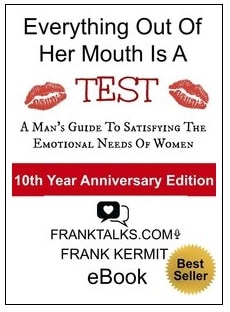 Understanding Women using the emotional needs analysis system of Frank Kermit Understanding Women using the emotional needs analysis system of Frank Kermit Tip #1 : Dress to impress. Most women will take note of a man’s appearance right away. While you are busy checking her out, she is actively doing the same but in a very different way. While you may be checking out her body, she is doing that as well, but in so much more detail. She is taking note of every little detail right down to the amount of facial hair you have and whether it’s been properly groomed. She is looking at your hands to see if your finger nails are dirty, she’s taking note on how much cologne you decided to put on (tip: less is more) and yes she is even checking to see if there is a tan line where a wedding ring might be. Some would say appearances don’t matter, not true. The old saying ‘’first impressions are important’’ is key! In life they say you have to dress for the job you want, well dating is really not that different. Women love it when a man makes an effort to look good, it shows they care, not only about their date but themselves as well. (this should be a given but it’s worth mentioning) A man who doesn’t have a good sense of style can be a complete turn off for some, where others can see it as a challenge (a fixer upper kind of guy). Either way, it’s best to play it safe and go with a nice collared shirt (no tie) and a dressy pair of jeans. You can never go wrong with business/casual style. 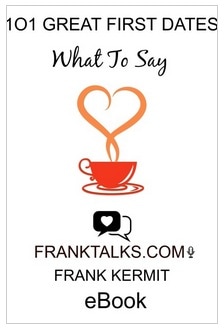 What To Day (and not say) on a First Date What To Day (and not say) on a First Date Tip #2: Leave the past behind. Nothing is more off putting than a man that seems to not have moved on from his last relationship. We all have our relationship baggage to deal with, but dealing with it while you’re on a date with another woman is not that time (this lesson applies to women too). If you’re out with a woman who just happens to enjoy the same kind of music as your ex, or she happens to like the same kinds of food as your ex, whatever you do, don’t bring it up! Mentioning any kinds of similarities between a date and an ex can lead not only to insecurities on her part, but also make you look like you’re still hung up on your ex! Of course, if you were in a serious relationship and are back on the dating scene you might notice you have a specific ‘’type’’ you are attracted to, which is fine. There are bound to be some similarities, just don’t go out of your way to mention them, especially on the first date. She will lose interest in you faster than you can say ‘’when can I see you again?’’  Get Confident Now Get Confident Now Tip #3: Confidence versus arrogance. Women love a man who is confident, but not to the point of arrogance. It is a big turn on when we see that a man has confidence in himself but at the same time he is humble about that confidence. For example, there is nothing worse than being with a guy who is good looking and acts like he knows it. The turn on for us is, he’s good looking but thinks he isn’t (I know it’s weird but it’s true). 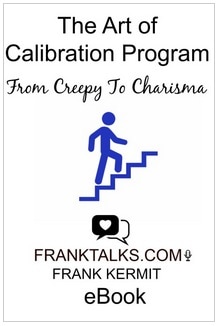 Learn The Easy Steps To Charisma Learn The Easy Steps To Charisma Tip #4: Keep some thoughts to yourself. If you’re on a date with a woman whom you find very attractive, refrain from making awkward remarks about specific things you find sexy about her (especially on a first date). You might find she has a great body or sexy lips and that’s fine, but making a point about how you happen to find those traits sexy is just creepy. For example, your date happens to have very full sexy lips, don’t blurt out ‘’you have the most beautiful, sexy lips I have ever seen!’’. It comes off as if all you’re looking at are her lips, which leads a woman to think all you’re interested in are her looks and not getting to know her as a person. If the relationship progresses past a couple of weeks, then those kinds of comments most probably could be a turn on, as opposed to making her want to run screaming in the opposite direction. Keep your cool and instead of fixating on her looks, listen to her when she speaks. Really take an interest in what she has to say. A man who can have a real conversation with a woman is so sexy and believe me, she will notice if you’re not actively listening, so really put some effort into it. If the chemistry is good, you will find there won’t be much effort required. I wish you all happy dating and I hope my tips will have proven useful to at least a few people. It can be tough out there and sometimes a few tips can go a long way. -Pillow Talk Gal About Pillow Talk Gal Born and raised in British Columbia, she is a professional woman managing a career, marriage, and a teenager. Life can be challenging at times but she's a firm believer that everything in life happens for a reason, and more often than not, she tries to understand those reasons. "Join me in my journey throughout life’s issues and I guarantee you’ll be left pondering an issue or two." - Pillow Talk Gal Past Pillow Gal Posts: http://www.franktalks.com/blog/sex-and-the-city-girl-talk-for-the-ages Suicide: What are the signs, what to do, and where to go? By Jenn and Sam, Mental Health Caseworkers If you’ve been on the internet lately, you’ve probably seen posts about the new controversial Netflix show “13 Reasons Why”. If you have not seen it, let us break it down for you. The show depicts a teenage girl, Hannah Baker, trying to navigate her way through a new school. Here, she encounters bullying from her peers and struggles with mental health issues that eventually contribute to her committing suicide. Prior to her suicide, she created audio tapes that detail the reasons why she chose to end her life. The popular show has been criticized for glamorizing suicide and portraying suicide as a justifiable act of revenge. On a more positive note, many mental health practitioners and teachers are using the show to open up a line of communication about suicide with youth and adults, to educate people on how to identify the signs and how to seek help or support someone who may be suicidal. There have additionally been initiatives by local high schools where students created and shared “13 Reasons Why NOT”, which are lists of reasons why suicide is not an option. Although the show opens up this doorway of communication regarding suicide, it demonstrates little knowledge or understanding of Hannah’s mental health problems. It does not address her hopelessness, desperation or helplessness. The show appears to focus more on morality and highlights that the consequences of bullying can be deathly. There is no denying the truth behind that last statement or the detrimental effects, both short term and long term, that bullying has on its victims. That said, there is still a much broader topic that is being left out. Suicide itself. Bullying is not the only reason people chose to take their own lives. The show additionally does not address many other questions surrounding suicide including;
As mental health workers, we see individuals with suicidal thoughts, ideations, and tendencies on a daily basis. It is something we are consistently screening for, because it occurs frequently as a result of other mental health disorders. This does not mean that a person has to have a mental illness to become suicidal, but it does increase the risk of suicide. According to a study completed in 2011, approximately 3,500 people commit suicide annually in Canada. This is a staggering number. Unless you are directly affected or working in a social service/mental health setting, you are most likely unaware of what the signs of suicide are. Furthermore, you are probably unaware of what to do if you encounter those feelings yourself or discover someone you love is suffering from them. What to look for: signs and symptoms What signs do we look for? First and foremost these are general guidelines and are in no way absolutes. Some signs are more obvious, while others are more subtle. An obvious sign is someone having or verbalizing that they have suicidal thoughts and/or ideations. Simply put, the individual is thinking about dying, how to do it, and what will happen if they go through with it. These are more obvious signs as the individual will often express these thoughts to multiple people and rarely will go through with it. Subtle signs include those that are less noticeable or associated with suicide. These are often not expressed by the individual, but can be noticed in their changed behavior. These can be significant changes in mood such as anger, volatility, recklessness and/or an increase in risk-taking behavior. The individual may start to withdraw from family and friends, become more reclusive where they were once social. The individual may turn to substance use that was not present before to numb the feelings or change their state of mind. They may feel anxious, hopeless or helpless in their situation and are unable to cope with it. They may also express thoughts of having no purpose to live and that no one would be affected or care if they were gone. They may express feeling that there is no other way out of a situation. On the flip side of the coin, their mood could drastically change in an appearingly positive way where they could present much happier than they have been, as they feel a sense of purpose through their plan to take their own life and are determined to see it through. What do you do if you see these signs in someone you know or love? The first step, although maybe the hardest, is to talk to them about what you see and your concerns. Do this with an open heart and from a place of empathy. Let them express how they feel and validate their struggle, while letting them know you are there to help and support them. It is important in these situations that the person feels someone cares about them and wants to help. At some point you need to be brave enough to ask them directly if they are contemplating suicide. Ask them if they have a plan, how they would do it and if they have a time frame. If the answer to any of these questions is “yes”, then there is an urgency that needs to be addressed. This can be seen clearly in “13 Reasons Why”. Hannah creates a clear and precise plan. She chooses to create 13 tapes, clearly collects all the items she needs (tapes, razor blades, recorder etc), maps out what to record on them and then ends with her taking her own life. Often, the person will reach out in some way or another, by trying to tell someone what they are feeling or by giving away something that holds a lot of importance for them. Hannah demonstrates this by making a final attempt to get the attention she needs from her school counsellor. Suicide is a serious issue, and if you recognize these signs in someone else, it is important that that person is not left alone.
It is a scary thing to do, but you could be preventing an unnecessary death. If the situation is less urgent, but warrants help, you can visit your local CLSC. The CLSC can refer you to the appropriate services. What do you do if YOU are having these thoughts or recognize these signs in yourself? If you see the signs in yourself, it is important that you speak to someone you trust and create a plan to help yourself. We encourage clients to create a SAFETY PLAN which includes a list of reasons you shouldn’t harm yourself. This can be lists of things you love to do, places to visit, things that make you passionate and important relationships in your life such as loved ones, family, friends and pets. Add a list of resources to call in a time of need
Add people you trust and can speak to on the list including family and friends. Make sure that these are people you can get in touch with if you feel unsafe being alone. Being aware of these signs and how to provide help might make it easier to catch someone who is contemplating suicide before they act. So please, do not be another face in the crowd. Reach out if you recognize the suffering in yourself or another. You could be the difference between life or death. -Jenn and Sam For more information on suicide prevention please use the following services: Suicide Prevention Canada http://suicideprevention.ca/ Canadian Mental Health Association They have a page dedicated to services for those facing suicidal thoughts and struggles or friends/family support. https://www.cmha.ca/mental-health/understanding-mental-illness/suicide/ West Island Crisis Centre Phone: 514-684-6160 Services: 24 hour emergency hotline, psychological assessment, intervention, temporary shelter and equipped with mobile unit for evaluations. Suicide Action Hotline: 1 866-277-3553 or 514-723-4000 This hotline is open 24/7 and can provide support and assistance. Author Bios Let us introduce ourselves. We are mental health case workers, and although that sounds like a big scary title, it is actually just clinical terms for saying that we help people help themselves. Our job is to empower people with the knowledge and tools to help manage any mental health issues they may be facing. This can range from small bouts of depression and anxiety, to suicidal ideation and chronic illnesses such as Schizophrenia and Bipolar disorder. Whatever the concern, we are here to provide support, guidance and direction in riding the wave to recovery. On a daily basis you can find us meeting with clients and creating Action Plans to accomplish short and long terms goals. We help locate and direct clients and families to community services and organizations. We create and facilitate sport therapy groups, workshops, educational seminars and group activities, all with goal of normalizing mental health issues and empowering clients with the tools and skills to move forward not only in their recovery, but with their life goals. If you are lucky enough, you can even spend time with our onsite therapy pup named Norbert, who is always available and more than willing to give some love and cuddles. Norbert plays his own role as a worker, going out into the community to spread awareness and help with prevention. Our approach is far from traditional and we strive to work outside the clinical “box”. We focus on the individual’s strengths, using their passions and goals to facilitate stability and recovery. Jenn and Sam Mental Health Caseworkers Suicide and Depression by Frank Mondeose Wow. Chris Cornell, say it ain't so bro! Another one leaving us to suicide. What makes a beautiful, powerful, impactful soul, take their own life? Earlier this year, a very popular Tantra teacher in California, Psalm Isadora, also took her life. She was bringing magic into people's lives in such big ways and dedicating her life to sexual health and awakening. So why?
What makes these suicides more notable then all the rest of them? To me, it shows that, no matter what it looks like, no matter how shiny the exterior, people are battling their demons every day. So these 2 are great examples, that happiness is not "out there", in perceived "success", but more sourced from within. How could these 2 individuals with all this light around them take their own life? And why do we sometimes try to glide over that the cause of death is suicide? Shame? Shame of what seems to be an insurmountable sadness that forces someone into the furthest edges of the rational world? RAW TESTIMONIAL: I want to share because I think if we speak, others won't feel as alone, because everyone is going through something worthy of escaping from. Many of you will probably be surprised, but... I have also battled with suicidal tendencies since high school, being brought to the brink at least a couple times. I have prayed for death. The result: cancer. My get out of jail free card, as I saw it. So why? I can only speak for myself. I feel. I feel everything. Some things regarding to myself, other things regarding to others, some from people I don't even f-ing know. It is a gift and a curse. It is so attuned, that sometimes I even feel what is coming up before it even happens, and feel, before I can even understand what I am feeling. This has often time put me in bouts with depression. I don't understand. I don't know anything. Why am I here? What does it all mean? Even when I am doing my best, the world seems to be falling around me. So what is the f-ing point of being here anyway? Why don't I just go back to source, where I can be at ONE again and not have to feel? Ouffff, what a topic. I need to keep it short to keep your attention. Bear with me. :) So why am I still here? I picked up a few things along the way. #1 I am here, I have no choice. I was put here for a reason. So what to do? Do the only thing that means anything: Show up in the best version of myself, that I can, as much as possible, and where i under-deliver, stay aware, attentive, and open to improving. This is all I can f-ing do. From there, the rest will play out, but at least I am in right relationship with my soul, while in manifest form. #2 The first time I did ISTA In ISTA Level 2 with Bruce Lyon, I had a shift in consciousness. I had a huge realization that suicide just could no longer be a part of my reality, as it will affect my vibrational footprint and effect my life in consequence. But it was Komala Lyra, who in my second ISTA Level 2 just recently in Guatemala, that anchored this concept of why stay here? Komala succinctly described the idea of escaping from manifest reality (duality), by yearning to return to "Oneness" through suicide as an impossible realization. This intense need to escape and leave here and now, is pulled by the soul's call to wanting to be in ecstatic Oneness with all, the interconnection of energy and source force. As Komala explained, buying a ticket to Oneness, by getting on a train of Duality and Separation is impossible. "You will never get there." Everything about suicide is in the realm of duality: me, my soul, my emotions, life, death, killing, who is doing the killing, for what purpose...the mind is engaged. Duality. The ceremonial intention to return to Oneness is littered with duality. "So, live your life. If you have a death wish, live it bigger than ever, and see where that takes you. But live it, and live it fully, from the core of your heart!" I don't know how all this is landing with you, but to me it unlocked the concept of my divine, gifted time, I have here, and that every feeling and emotion, is a gift. Every heart break, every longing, every broken expectation, every laugh, every cuddle, every orgasm, is all a gift. A gift that brings us back to the realm of experience. Oneness sounds blissful, but i don't think it will feel like anything more than *everything all at once*. So while we are here, engage the singular experience of feelings, and emotions, and allow them to put you on a path of self-discovery, and soul alignment. This is why I can live so boldly. This is why I can speak my mind so clearly. This is my time. This is the blessing I was gifted with, and there is no person, no culture, no authority, that will tone me down, because my soul speaks to me and tells me that I was put here to SHINE, and it is my divine responsibility to use this time, while I am here and gifted with it, to open my HEART, to FIND MY BLISS and SHINE. And there is no way to make that happen if I am more focused on what others will think of me if I live out my bold truth. With love, respect, and gratitude for all and those souls who felt the need to go, instead of living it out here with the rest of us. You are great teachers. xo -Frank Mondeose About The Author Frank Mondeose is the owner of Monde Osé is which is a lifestyle brand focused on promoting the understanding and enjoyment of life, love and sensuality. Their mission is to offer distinguished sexy entertainment and seduce our audience while maintaining a classy high end product. Read Frank Mondeose's past posts here: http://www.franktalks.com/blog/burlesque-101 http://www.franktalks.com/blog/intro-to-sexual-shamanism-workshop-montreal The Jackson 5 Were My Brothers by Nat King Pole So the Jackson 5 are my brothers and we just sing and dance all day. Well at least in my mind they were from age 6 to well... now at 55 lol. I was raised an only child in a small town of 200 on the border of Ontario. Everybody was very white and spoke English or French.
I was 6 years old and I was hooked. From that day on it was all about the Jacksons followed by Motown and Martin Luther king and African American history. I'm getting ahead of myself.
Now the Jacksons became my héros just because I loved the music and the dancing but as I got older I learned that they were also part of a group of people that were not loved and accepted just like me. When I learned he was shot I was devastated as I figured we were doomed to be hated forever. But black people understood oppression and therefore would understand who I was and accept me. I had found my people! Ok I'm about 8 yrs old at this point. I didn't quite get all the subtilités of prejudice.
I wanted an Afro I wanted everything they wore, I never missed them on TV and just bought everything I could get my hands on that I could with my 50 cent a week allowance.
Then I'd spend hours trying to copy what I'd seen. I knew every lyric and move by heart. Man, I was the 6th brother. Now all this put me in the loner weird nerd kid category until secondary five (Grade 11) when it happened. A talent contest. That weird nerdy kid is actually trying out. This should be hilarious they thought. Well no one knew what I'd been up to all these years.
Everyone was standing and going crazy! My parents and grandparents were crying and I won and my whole life changed dramatically that day. Since then I've seen the Jacksons a total of 3 times live and am going for four this June.
Today I'm still performing and it's what gives me the most joy in life. That's when I can be who I really am and it's just as magical as it was when I was in my parent's place just me and my imaginary brothers -Nat King Pole About the Author Nat king Pole is Montreal's busiest drag King and has been for 15 years. As well as performing regularly In his hometown he's been making ladies swoon in Toronto, Quebec city, Ottawa and in Philadelphia, Boston, Provincetown Etc. He sings Live, writes his own parodies, dances and is just plain sexy. They call him the panty whisperer. His website is: http://natkingpole.com/ To read Nat's past post: http://www.franktalks.com/blog/profile-of-a-drag-king Updated on March 1, 2018. Please note that Monique has in fact located her birth family and met them. This post caught the eye of someone on a Facebook group (Search Squad), and we put Monique in touch with the Facebook group that helped her with her search. In less than 1 year, Monique met her birth siblings and birth mother. Help Monique Find Her Birth Family If you recognize anyone from the photos, or from the information, Please directly contact Monique at (705) 471-6684 or you have more information to offer anonymously Please contact the site admin: [email protected] Birth Name: Marie Isabelle Judith Name Adoption: Marie Carole Therese Monique Gaudreau Place of Birth: Hull, Quebec Date of Birth: October 16, 1965 Orphanage: Ville-Joie Ste-Therese de Hull. Date of Adoption: (cir 16 Months old) January 31, 1967 Other Registered Information: Place of Baptism: Notre-Dame de Graces, Hull, Quebec Date of Baptism: November 9, 1965
Information of Biological Family on File: Bio-Mom: (born cir. 1932) was 33 at the time of birth of Monique. Caucasian French-Canadian, spoke French, Catholic, unmarried, living in the Outaouais region of Quebec. She was about 5’3”, weighed about 108 lbs, with brown hair, brown eyes, and listed as having a fair complexion. Her education level was 7th grade and her occupation was a Waitress. Bio-Dad: (born cir. 1929) was 36 at the time of birth of Monique. Caucasian French-Canadian, spoke French, Catholic living in the Outaouais region of Quebec. He was about 5’9”, weighed about 180 lbs, with black hair, black eyes and listed as having a fair complexion. His education level was 5th grade, and his occupation was a Truck Driver. Maternal Grandparents: M-GrandFather died at the age of 50 from a heart attack M-GrandMother (born cir. 1910) was age 55 and her health was listed as good at the time birth of Monique. M-Grandmother was a homemaker. M-Grandmother had 4 sisters (all listed as married and homemakers) and one brother (M-Uncle). M-Uncle (born cir. 1951) was age 14 at the time of birth of Monique and was a student at the time. The family was listed as living in a poor social and economic situation. Paternal Grandparents: In 1965, both paternal grandparents were listed as living and in good health. **** Disclaimer: Much of the information above is from the C.P.E.J. Outaouais Letters To Her Biological Parents From Monique A Letter From Monique To Her Biological Mother Dear Mom, Being Adopted is emotional life sentence, not knowing your identity. most Adoptees have so much love and sensitivity. We have been through depression, anxiety, Just because two people have never met, does not mean that love between the two don't exist. What ever was the circumstance , many of us Adoptees have forgiven, but not forgotten our loss. I personally want to say these words to a women that gave birth to me.. You are awesome... I forgive you... You had tremendous strength for giving me away.... I am so sorry that you had suffered in silence... You deserve to be recognized as my mother, even though you did not raise me, you brought me into this world, and gave me to a total stranger , in hope that I could receive what you felt you would be unable to provide for me. No one has ever thanked you, for your unselfish love. No one was there to guide you through after your hardest decision. I want to thank you personally for making me strong , and by doing what you did. The love I have for you, YES YOU! It is so strong. I Pray that in your heart you will feel at peace with yourself, and remember no one has the right to judge you...Not even me. If you have passed on, please give me the opportunity to place a rose at you resting place, and await till we meet again someday. From your biological daughter to my biological mother...I never knew. I love you!! -Monique A Letter From Monique To Her Biological Father Dear Dad, To my Biological father I never knew. I am not here to judge you! I only want to say. I understand... I have no hate.... You played a very important part in my existence... I feel the need to tell you, I always had love for you in my heart . Whatever the circumstances that lead me to be given away, I have no hate, for I myself have learned so many things in my lifetime, and failed. I know that my place is not to judge, and I promise I won't !!!! I am willing to receive you with open arms, please do not let your mind and heart feel troubled, but know I am here for you. If you should have passed on, please I pray that you might of shared your deepest secrets to someone that could reconnect with me. My promise to you if you were taken to be among the Angels, is to place a rose at at your resting place, in remembrance and respect for you, for accepting the many challenges that this may have caused you in your lifetime. Being human is one of the hardest things at times, and this I truly believe. With Love from your biological daughter you never knew, to a biological father I pray to meet one day. -Monique ***** About Monique About Monique: Monique is married and currently resides in the city of North Bay, Ontario. ************************************* If you recognize anyone from the photos, or from the information, Please directly contact Monique at (705) 471-6684 or you have more information to offer anonymously Please contact the site admin: [email protected] Is there such a thing as Happily Single? By Frank Kermit Is being single really that bad? After all, when a person considers the amount of pain that a relationship or casual dating can cause, it may seem that just skipping the whole dating-thing altogether might make for a more peaceful life. Could it be that intimate relations are simply not for everyone, and maybe you happen to be one of those people? How do you know if being alone is the right choice for you and is it even possible to be content, o r even fulfilled in a life without romantic love? As always, that answer is completely up to you.
Without having experienced what a health loving relationship can be, or not having experienced the positive attributes of being with someone that cares for you, it is challenging for someone to see the value is pursuing a goal they have no concept of.
In these cases, people tend to be encouraged to work on themselves before entering into romantic relationships so that the challenges inherent with romantic relationships do not distract the people from the healing process, nor allow the romantic relationships to exasperate a persons energy causing them not to have the personal resources to slay the demon. This is most commonly understood when someone enters a drug and alcohol treatment center where patients are forbidden to have relations with each other and contact with loved ones must be limited. Dismissed as laziness by some, the lack of willingness to put in the work required to change behavior patterns is nothing to scoff at. Changing anything in your life forces you out of your comfort zone. It takes work. The motivation to make such changes may very well require that someone hit an absolute rock bottom before having enough gumption to finally make that change. The same principle applies to changing the status of a persons love life. It is unfortunate that people require that kind of rock bottom to reach a point where the pain of staying where they are is finally greater than the pain of making a change. When I am asked if it is better to be in a relationship that is bad, or being alone, I often quote one of my inspirations. To paraphrase: "Are you better off with that person, or better off without that person?" There is no set answer. It completely depends on the context of your situation. There are a number of other factors to consider in the answer to this question.
If you complain about being in a relationship, again do something about it.
If you are trying to figure out if you want to give up on love or not, one of the ways to decide this for yourself is to sit down and work through the differences between your feelings towards single life and your desires for the kind of lifestyle you want for yourself. Start with your ideal lifestyle and work your way backwards to your current present date. Once you have that ideal (and REALISTIC) lifestyle mapped out, see if you are the type of person that can actually attain it, and if you would be able to attract the kind of partner that you yourself would need to be. Frank Kermit P.S. Do you Agree With This Article? Disagree? Have something to Add? Write your thoughts in the comments below and share this article to see how many of your friends think like you. Remembering the Dead at a Wedding by Frank Kermit Sometimes, couples who marry want to do something at the wedding in memory of the people who passed away. This happens, especially when the death was recent. At my wedding, my wife and I did a little ceremony at the reception where we lit a candle and read an inscription, announcing it was in memory of various relatives that had died, who would have wanted to attend. It was very short, but it did bring us come comfort, and it was also comforting to some of the attendees who were still in mourning. We all cope with loss differently. It is important for the wedding couple to also remember, that not everyone will appreciate your efforts to pay tribute to your lost loved ones. One of the biggest mistakes I see people make, is they try to tell someone else that how they grieve is wrong. For example, this story is of a wedding I attended: A father dies a few months before his son is set to be married. At the wedding, a special tribute is made in honor of the late father. The groom and his mom dance to a song that was in memory of his dad. All the guests were invited on the dance floor to circle them. Then it happened... at one point, the groom and his mom started to cry a little. It was not a hysterical cry at all, but the tears were evident. Everyone around them formed into a circle continued to move to the music. ...except one man. He started to raise his voice to tell the DJ to stop the music. He was an uncle in the family, and felt that the song and tribute was making them cry and that it was wrong. So he made a fool of himself trying to stop the tribute. Luckily, the DJ and the rest of the guests ignored him. The uncle was not comfortable with seeing, or dealing with, grief. He tried to "protect" everyone else from grief as well. That was the worst thing he could have done, and lucky for everyone at the wedding, the DJ was smart enough not to listen to him. Make sure that you let the DJ, or other wedding professionals involved know about any potential trouble-makers, and let the wedding professionals also know exactly what your wishes are in case a wedding guest decides to act out. If you can predict who might be the kind of person to act out, at your wedding, it might be a good idea to let that person know ahead of time what you are planning. This is not about getting that person's permission. It is more about letting that person know, so the shock of surprise in combination of the grief and mourning does not motivate that person into doing something that will turn your wedding from spectacular to a spectacle. -Frank Kermit P.S. Do you Agree With This Article? Disagree?
Have something to Add? Write your thoughts in the comments below and share this article to see how many of your friends think like you. |
Categories
All
Archives
June 2024
NDG Encore Singing Chorus **** Every Friday Night Dr. Laurie Betito Quotes
|
|
FRANK KERMIT MA
EXPERT RELATIONSHIP COACH HELPING PEOPLE CONNECT |
ALL COACHING IS BY TELEPHONE OR SKYPE ONLY INTERNATIONAL CLIENTS ARE WELCOME *INTERNATIONAL CLIENTS ARE RESPONSIBLE FOR LONG DISTANCE PHONE CHARGES, +1 Canada/USA* SKYPE IS PREFERRED. IT'S FREE AND EASY TO USE FROM ANYWHERE IN THE WORLD TELEPHONE: +1-514-680-3278 EMAIL: [email protected] SKYPE: frank kermit PLEASE NOTE THAT ALL SALES ARE FINAL. NO REFUNDS OR EXCHANGES
|

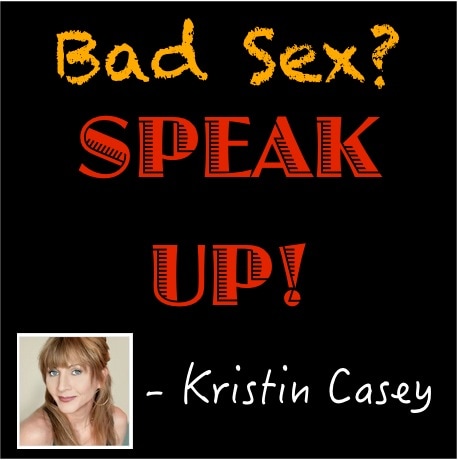
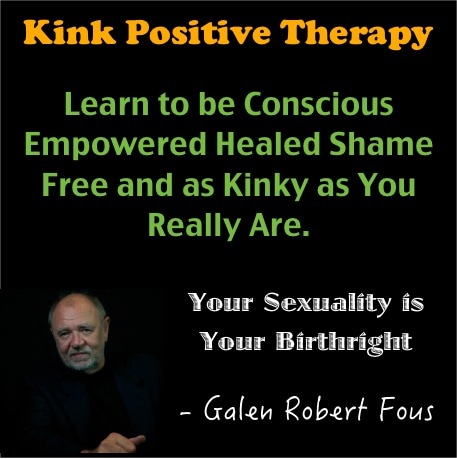
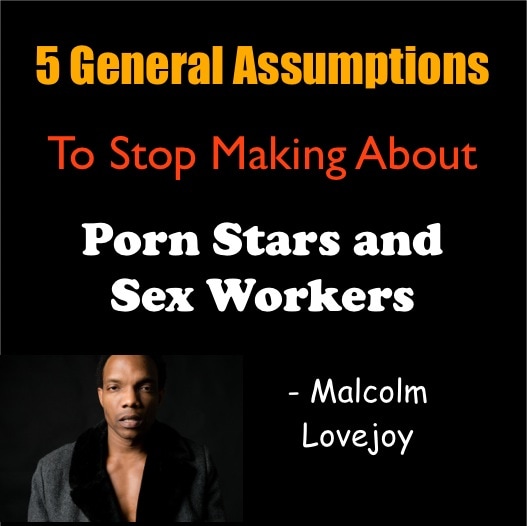


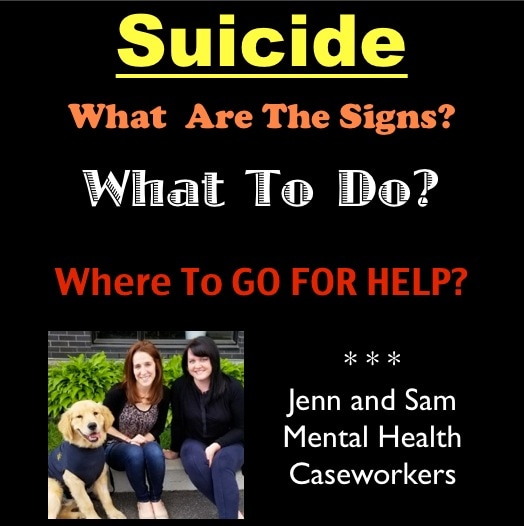

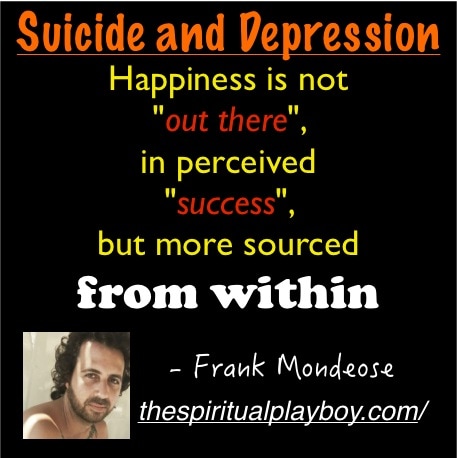
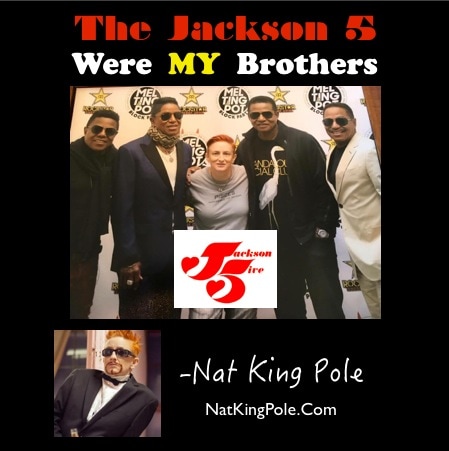
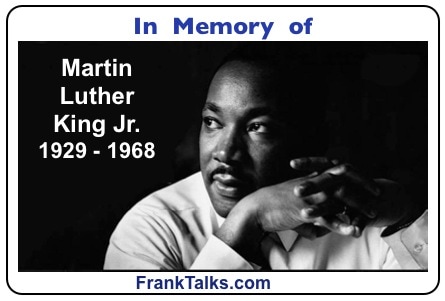
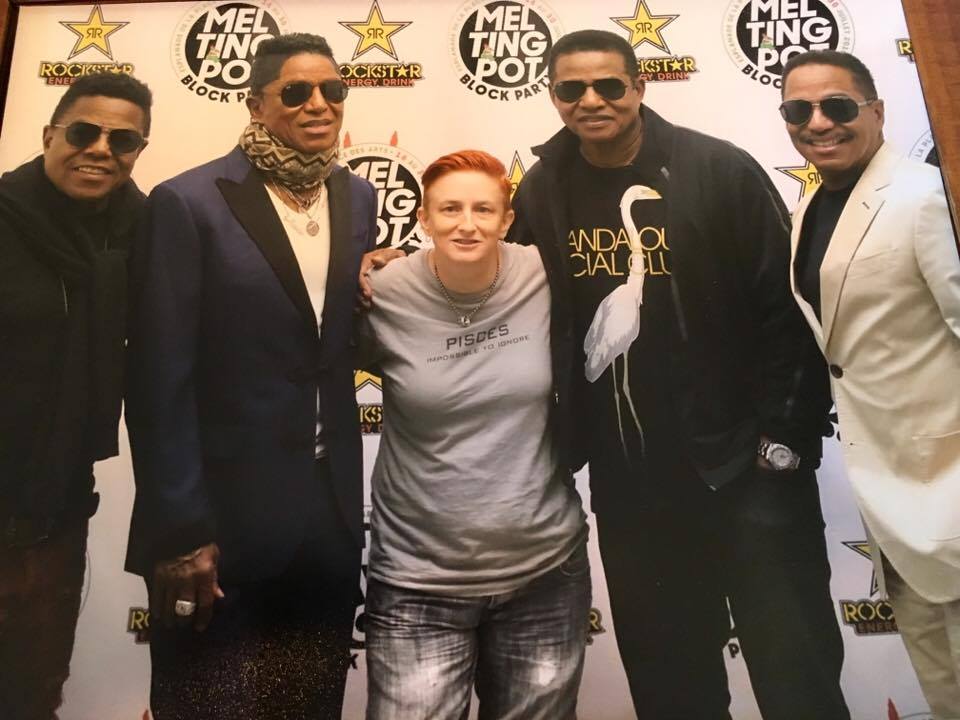
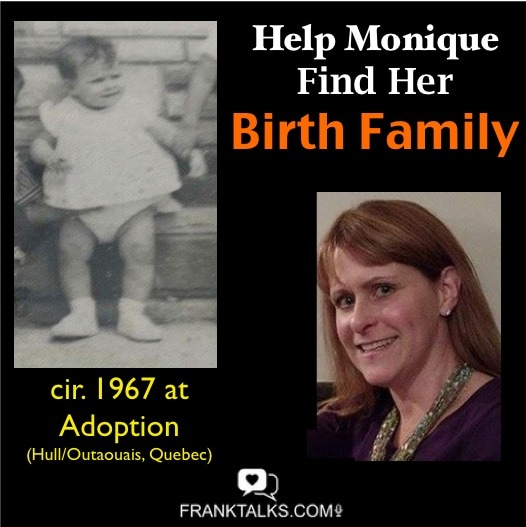
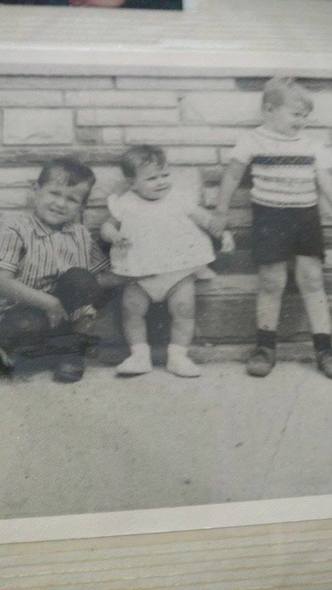
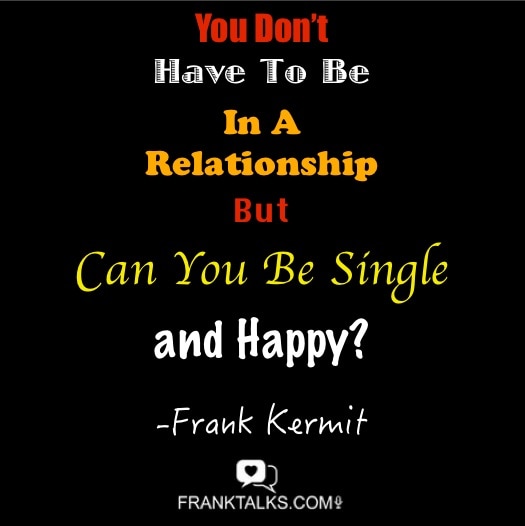
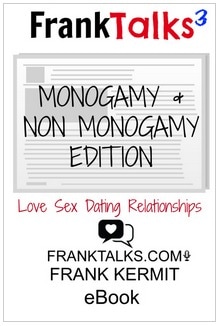
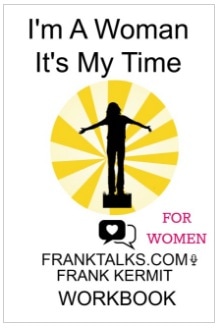


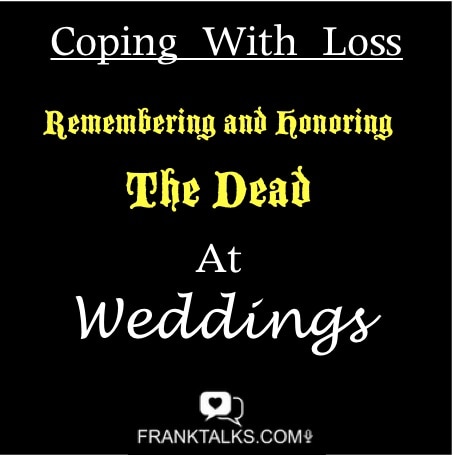
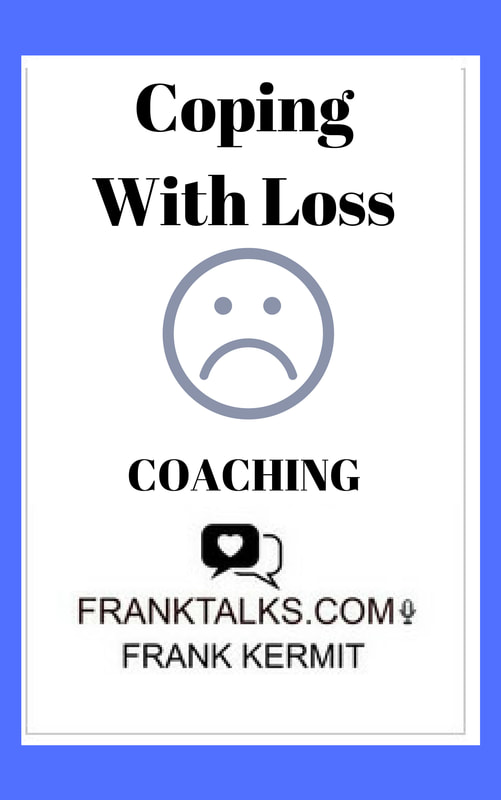
 RSS Feed
RSS Feed


